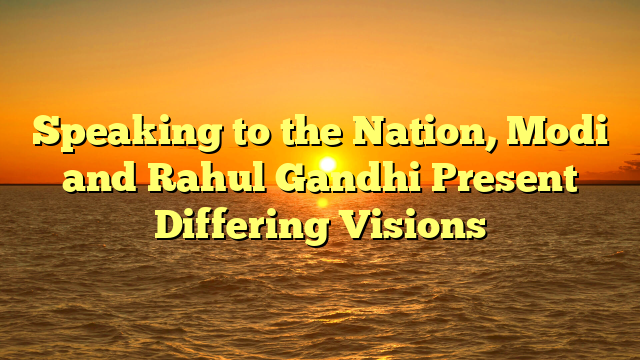The BJP’s electoral performance reaffirms Prime Minister Narendra Modi’s enduring popularity and the party’s organizational strength. With impressive victories in states like Uttar Pradesh, Maharashtra, and Gujarat, the BJP has solidified its position as the ruling party, securing a decisive mandate from the electorate.
In Uttar Pradesh, India’s most populous state, the BJP clinched a resounding victory, thanks to the leadership of Chief Minister Yogi Adityanath and the party’s relentless focus on development and governance. Similarly, in Maharashtra and Gujarat, the BJP maintained its stronghold, with Chief Ministers Devendra Fadnavis and Vijay Rupani leading the party to commanding victories.
Despite the BJP’s dominance, opposition parties have made significant gains in several states, signaling a potential revival of the non-BJP political bloc. In states like Punjab, Rajasthan, and West Bengal, opposition parties such as the Congress and Trinamool Congress have secured notable victories, challenging the BJP’s hegemony and providing a glimmer of hope for a more competitive political landscape.
In Punjab, the Indian National Congress led by Chief Minister Charanjit Singh Channi secured a decisive victory, signaling a comeback for the party in the state. Similarly, in West Bengal, Chief Minister Mamata Banerjee’s Trinamool Congress emerged victorious, thwarting the BJP’s attempts to make inroads into the region.
Following the recent electoral outcomes, Prime Minister Narendra Modi and Congress leader Rahul Gandhi delivered poignant speeches, each reflecting their respective visions for India’s future. Here’s a detailed analysis of their addresses:
Prime Minister Narendra Modi:
In his speech, Prime Minister Modi expressed gratitude to the electorate for their overwhelming support, emphasizing the significance of democracy and the power of the people’s mandate. Modi highlighted the BJP’s commitment to serving every Indian citizen, irrespective of caste, creed, or religion, and reiterated his government’s dedication to fostering economic growth, national security, and social welfare.
Modi outlined key priorities for the BJP-led government, including accelerating economic recovery post-pandemic, enhancing infrastructure development, and bolstering India’s position on the global stage. He stressed the importance of self-reliance and innovation in driving India towards prosperity and urged citizens to embrace the spirit of “Atmanirbhar Bharat” (self-reliant India) as a catalyst for transformative change.
Addressing concerns over divisive politics, Modi called for unity and inclusivity, emphasizing the need to transcend political differences and work collectively towards nation-building. He pledged to lead India with humility and dedication, vowing to uphold the principles of democracy and secularism while charting a course for progress and development.
Modi’s speech resonated with his supporters, who applauded his unwavering commitment to the nation’s welfare and his vision for a prosperous and inclusive India. His message of hope and resilience struck a chord with millions of Indians, reaffirming his status as a charismatic leader with a steadfast resolve to steer the nation towards a brighter future.
Congress Leader Rahul Gandhi:
In his address, Congress leader Rahul Gandhi reflected on the electoral outcomes with humility, acknowledging the party’s victories and defeats with grace. Gandhi commended the electorate for their participation in the democratic process and expressed gratitude to Congress workers for their tireless efforts during the campaign.
Gandhi highlighted the Congress party’s commitment to upholding the values of secularism, social justice, and inclusivity, emphasizing the importance of unity in diversity as a cornerstone of India’s identity. He called for introspection within the party, acknowledging the need for renewal and rejuvenation to better connect with the aspirations of the people.
Addressing pressing issues such as unemployment, economic inequality, and healthcare access, Gandhi outlined the Congress party’s vision for addressing these challenges through inclusive policies and welfare schemes. He emphasized the need for constructive dialogue and cooperation across party lines to tackle the nation’s most pressing problems effectively.
Gandhi’s speech struck a chord with many, particularly Congress supporters who appreciated his sincerity and humility in acknowledging the party’s shortcomings. His call for introspection and renewal resonated with those seeking a rejuvenated Congress party capable of providing robust opposition and alternative governance solutions.
In summary, Modi and Gandhi’s speeches offer a glimpse into the competing visions for India’s future, with Modi advocating for continuity and progress under BJP leadership, while Gandhi emphasizes the need for inclusive governance and social justice through the Congress party’s platform. As India navigates the complexities of its democratic journey, the divergent paths laid out by these leaders will shape the nation’s trajectory in the years to come.
Key Takeaways:
The recent elections have underscored the resilience of India’s democratic institutions and the electorate’s discerning judgment. While the BJP remains the dominant force in national politics, the resurgence of opposition parties in certain states suggests a growing appetite for alternative governance and policies.
The BJP’s electoral triumph reflects Prime Minister Modi’s continued popularity and the party’s effective campaign strategies. However, the diverse outcomes across states also highlight the electorate’s nuanced preferences and the importance of regional dynamics in shaping electoral outcomes.
As India navigates the post-election landscape, the onus is on political parties to govern responsibly, address pressing issues, and fulfill the aspirations of the people. With a renewed mandate, the BJP faces the challenge of delivering on its promises of development and progress, while opposition parties seek to hold the government accountable and offer viable alternatives for governance.

